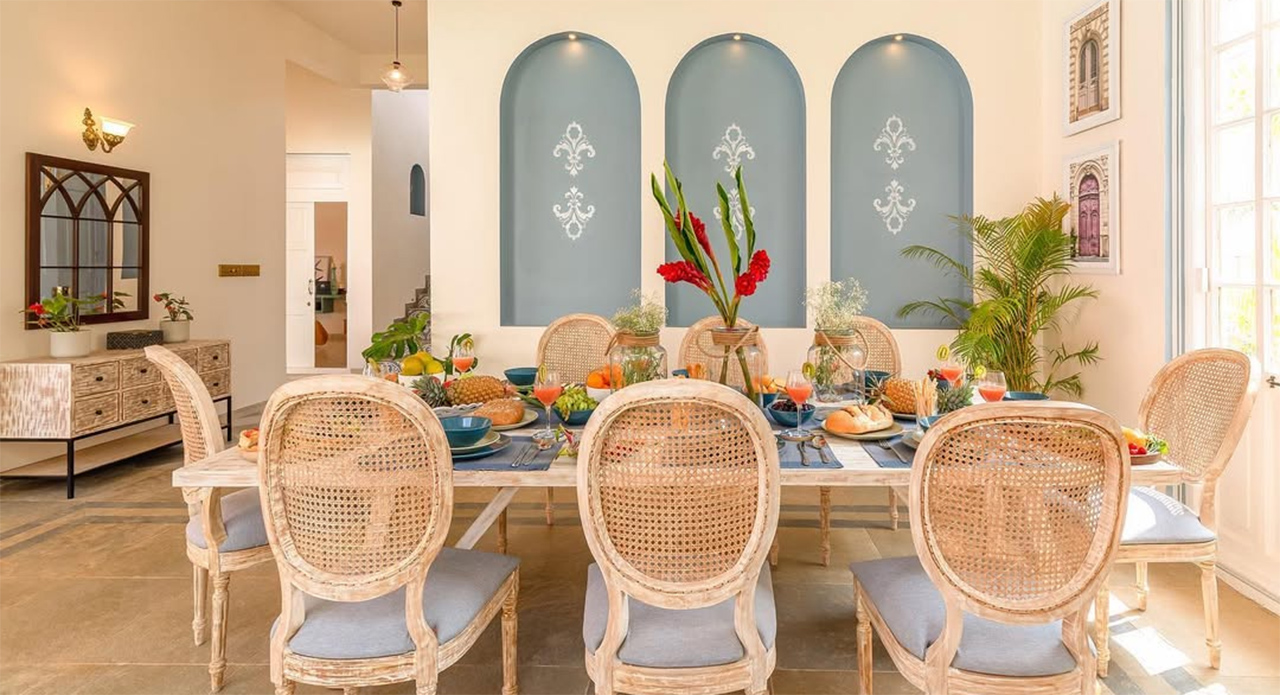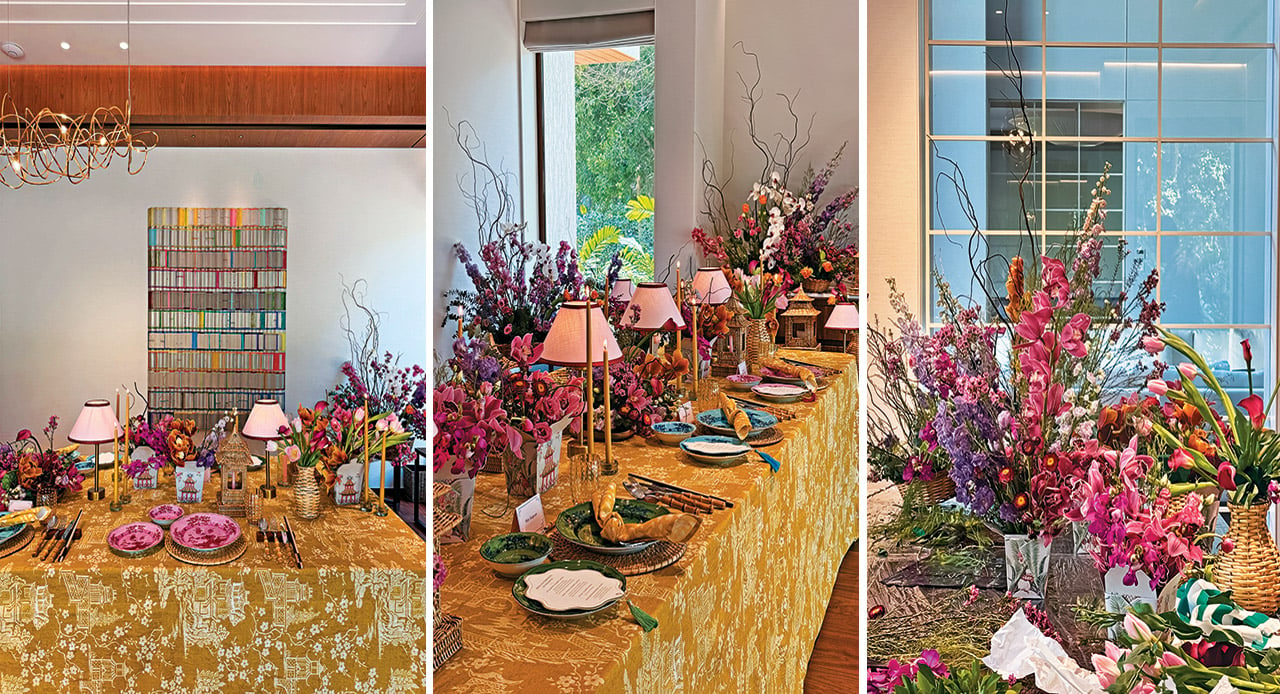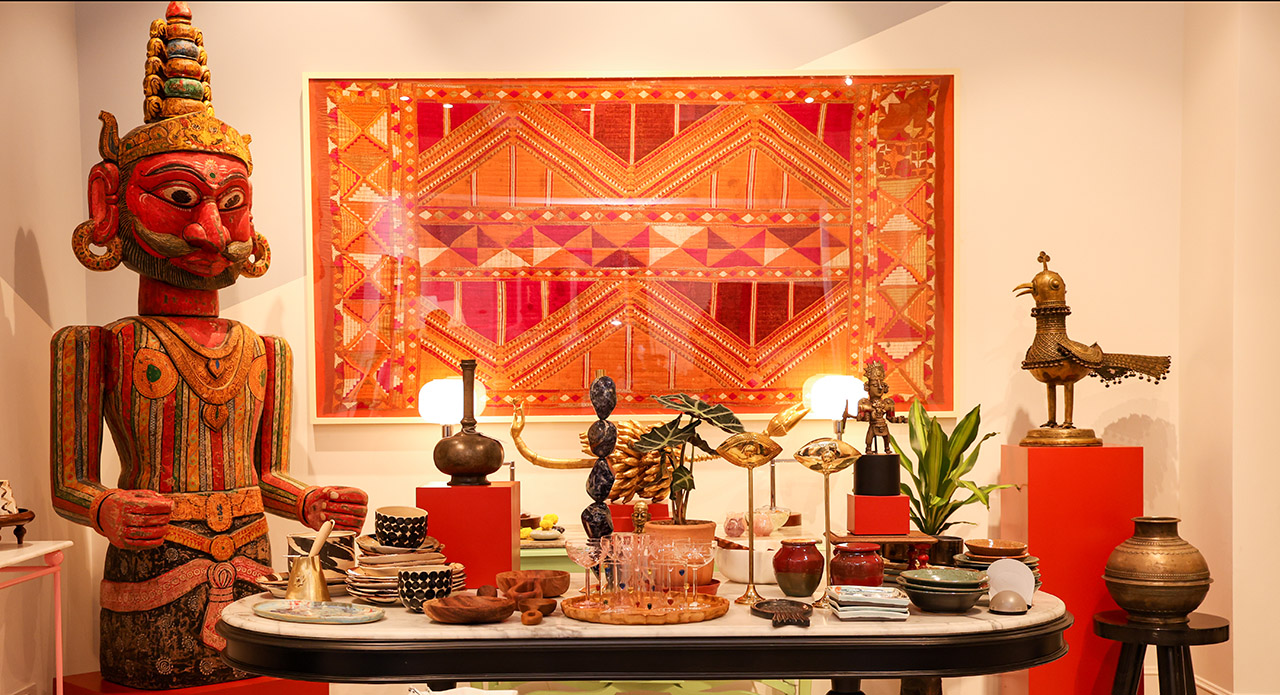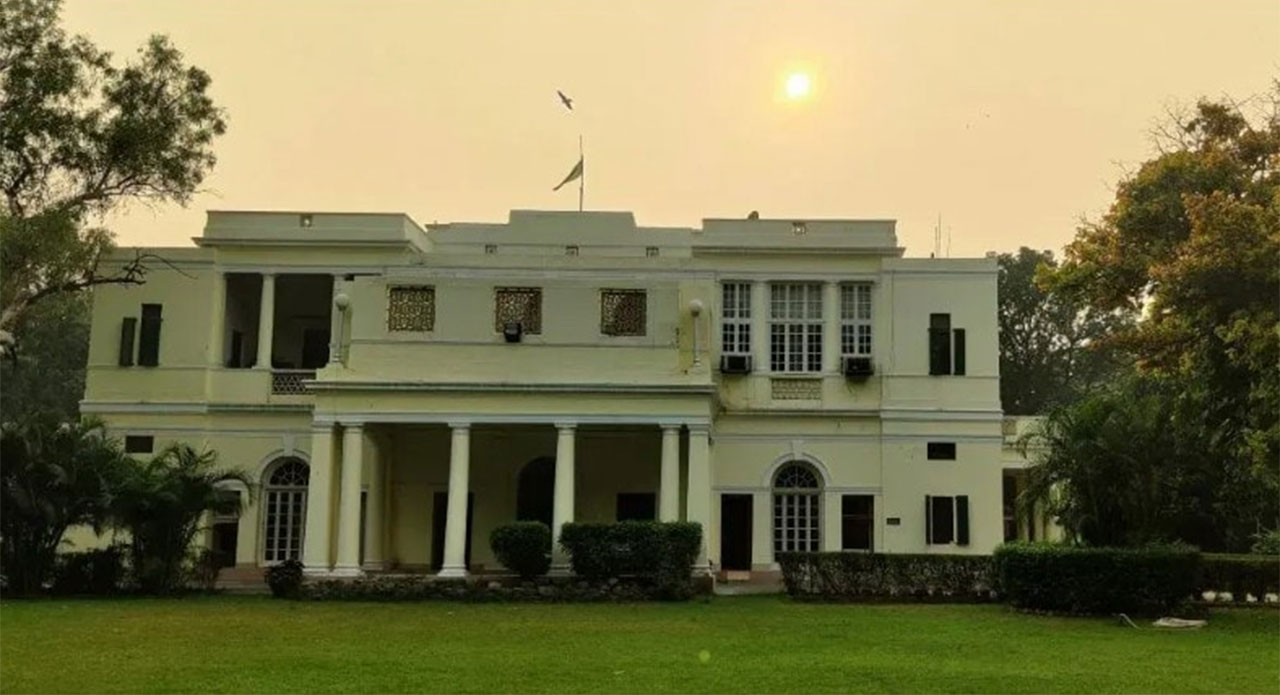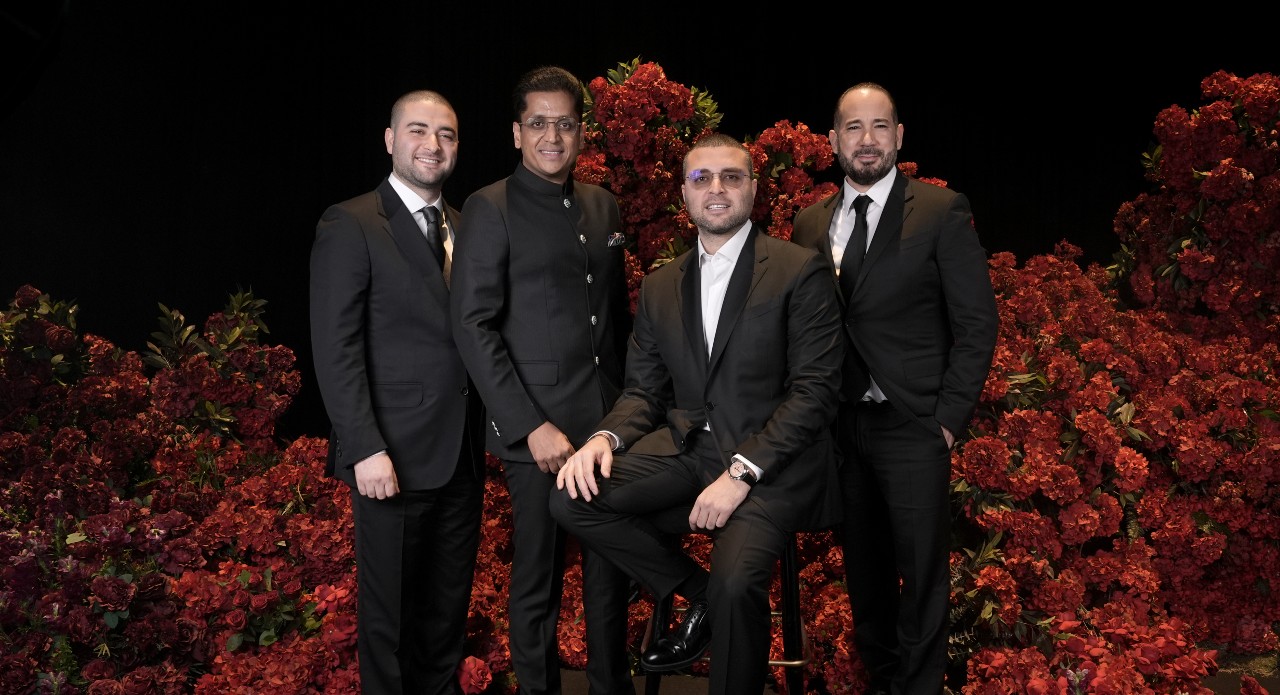2024 has proved to be an exciting year for Indian crafts and design. Beyond the Ambani wedding extravaganza that brought the brightest of couturiers and design experts together, Indian couture and fashion have graced global stages from the Met Gala to Cannes 2024, and rightfully given our homegrown heritage arts and crafts a global platform. We have seen everything from Jennifer Lopez wearing a custom Manish Malhotra-designed birthday gown to Rihanna dazzling in Manish Malhotra and Sabyasachi Mukherjee jewellery.

But who would’ve thought a carpet and rug brand from India would be taking giant footsteps in elevating craftsmanship from rural India with its exquisite creations at Salone del Mobile or the Milan Furniture Fair, “the iconic landmark and meeting place for the design world.” Jaipur Rugs, which started its journey in 1978 with just two looms and nine artisans, has today grown into 16 stores worldwide—including a flagship store in Milan—and has showcased at several international design fairs.
This year, the brand celebrated significant milestones, including the launch of its first UK showroom with an innovative campaign titled ‘The Court of Carpets.’ The out-of-the-box campaign featured tennis star Rohan Bopanna competing with Jaipur Rugs’ artisans on a court covered with 93 exquisite rugs, creating a Wimbledon-meets-rural-Rajasthan visual spectacle.

Showcasing its design excellence, the brand also showcased at Milan Design Week 2024, highlighting three Italian collaborations, including a notable partnership with Chanel-owned, Piedmont-based yarn atelier Vimar 1991.
Employing over 40,000 artisans of which 85% are women across 600 Indian villages, Jaipur Rugs is a story that is not just about selling rugs, but also creating artisan empowerment and community engagement. We speak to Yogesh Chaudhary, Director of Jaipur Rugs, to tell us how this 46-year-old family run passion of carpet weaving is generating empowerment and luxury from village to a global stage.
Edited Excerpts:
1. Jaipur Rugs was founded by your father Nand Kishore Chaudhary in a small village in Rajasthan to empower marginalised woman and hone the local talent. From a small village initiative to a luxury brand, how did this transition happen?
The journey of Jaipur Rugs from a small village enterprise to a globally recognised luxury handmade brand is a testament to the vision, determination, and resilience of its founder, my father, and the entire team of people involved. Today we have 11 mono-brand stores in Jaipur, Delhi, Mumbai, Bangalore, Pune, Milan, Dubai, the United States, and London. Highlighting the unique stories behind each rug and the artisans’ craftsmanship added to our brand’s appeal and to maintain the quality of craftsmanship, we began investing in training, technology, and infrastructure to ensure consistent quality to help establish our reputation. Recognising the global demand for handmade products and the appreciation for Indian craftsmanship, the company began exploring international markets through strategic partnerships and trade shows which further expanded our reach. Experimenting with new techniques, and our consistent collaboration with designers, and staying abreast of industry trends has kept us relevant.

2. In a country that is rich with regional arts and crafts, how did you redefine the vision of traditional carpet making and differentiate your brand?
We embraced India’s diverse artistic heritage by incorporating regional crafts into our designs. We create carpets that are not just functional pieces but also pieces of art that celebrate India’s cultural richness. Our raw materials are sourced meticulously from diverse regions. Wool is obtained from Bikaner, Afghanistan, and New Zealand, while silk is procured from China. These raw materials undergo a careful transformation process. Initially, skilled katwaris spin the wool, followed by dyeing the yarn in a rich array of colours. Subsequently, the dyed yarn is shipped to various villages, where adept weavers bring them to life through intricate weaving techniques. The finished rugs undergo an 18-step process to ensure the highest quality before reaching our retail stores. The most compelling aspect of our carpets is storytelling and that helps us to connect with customers on a deeper level. By sharing the stories of the artisans behind each rug—their traditions, struggles, and triumphs—Jaipur Rugs has fostered a sense of connection and appreciation among consumers, making the purchase not just a transaction but a meaningful experience.

3. Do you prioritise art or business?
We see art and business as complementary. Art inspires our products, while business ensures sustainability and growth. Supporting both creates an ecosystem where creativity flourishes, artisans are empowered, and customers are delighted with exceptional products. Our philosophy revolves around creating positive social impact, preserving cultural heritage, and fostering environmental stewardship.
We believe in empowering artisans by providing them with sustainable livelihoods, fair wages, and opportunities for skill development. Through training programs and workshops, we ensure that artisans have the knowledge and resources to thrive in their craft and improve their economic well-being. By investing in infrastructure, education, and healthcare, we contribute to the overall development and well-being of these communities. Our focus on community development extends beyond economic aspects to encompass social and environmental sustainability. Also, central to our mission is the preservation of traditional arts and crafts. We work closely with artisans to ensure that traditional techniques are passed down through generations and continue to thrive in a modern context. By incorporating traditional motifs and designs into our products, we celebrate cultural heritage and promote the value of handmade craftsmanship.

4. How do you cater to the international market and is it true that 85% of your revenue comes from exports?
Yes, 85% of our revenue comes from exports, with 12% from retail and 3% from online sales. Firstly, we have invested significantly in establishing strong relationships with international distributors and partners. These partnerships allow us to penetrate new markets efficiently and effectively, leverage their expertise and local networks. Secondly, we prioritise quality and craftsmanship, which has helped us build a reputation for excellence in the global market. Employing skilled artisans ensures that our products are highly sought after by discerning customers worldwide. We also adapt our designs and product offerings to cater to the diverse preferences and trends in different international markets.

5. Jaipur Rugs has collaborated with celebrated artists from different walks of life, how do they align with your brand philosophy?
The collaborations with artists such as the one with Kunaal Kyhaan Seolekar aims to bring fresh perspective with its unique artistic styles, new ideas and creative process to design. It helps us to incorporate diverse cultural elements and stand out in the market by offering unique and exclusive designs that cannot be found elsewhere in home decor products.
6. How do you define luxury and Jaipur Rugs as a brand?
Luxury is about craftsmanship, attention to detail, and the intangible qualities that elevate an ordinary product or service into something extraordinary. For Jaipur Rugs, luxury lies in traditional craftsmanship, exquisite design, and ethical sourcing practices. Our rugs are not just pieces of décor, but timeless artifacts painstakingly handcrafted by skilled artisans using age-old techniques passed down through generations. Each Jaipur rug tells a story, reflecting the rich cultural heritage of India and the skilled artisan’s dedication.

7. How do you protect your weavers’ individual creativity?
Protecting the individual creativity of weavers is crucial as it not only respects the artisans’ intellectual property, but also fosters a culture of innovation and empowerment within the workforce.
In 2014, to empower weavers and to help them express their creativity like never before Jaipur Rugs initiated a groundbreaking initiative named “Manchaha.” Breaking away from tradition, these weavers are given the opportunity to design their own rugs, marking a significant shift in the landscape of rural craftsmanship. This initiative taps into the raw, unbridled fashion sense prevalent in rural India, nurturing the untapped creative potential of its artisans.
Each rug, meticulously handcrafted with over 200,000 knots, becomes a canvas for the weaver’s personal narrative – a tale woven with emotions, dreams, and individuality. Through this initiative, rural men and women, many with limited formal education, have astonished the world with designs that rival professional standards. It’s a transformative journey, turning a community once exploited into one empowered with newfound confidence and recognition.

8. Tell us more about your experience at Salone del Mobile Milano and your collaboration with Chanel-owned atelier Vimar 1991?
We unveiled three new collections with Italian studios at Salone del Mobile Milano 2024 which highlights the growing recognition of Indian brands on the global stage. Participating in prestigious events like Salone del Mobile Milano provides Indian brands like us with a unique opportunity to showcase our rich heritage and exquisite craftsmanship, while also fostering cross-cultural exchange and innovation in design. Collaborating with Vimar 1991 to create the first collection of couture carpets has been an extraordinary experience. The partnership has allowed the brand to push the boundaries of traditional rug-making and venture into the realm of haute couture, elevating its craft to a whole new level of sophistication and exclusivity. Each rug in the collection is meticulously handcrafted using the finest materials and techniques, showcasing intricate patterns, textures, and designs that reflect the essence of haute couture.

9. How do you envision the future of India’s carpet-making industry and the lives of weavers?
Looking ahead, India’s carpet making industry is set for significant growth and transformation, propelled by advancements in technology, shifting consumer preferences, and a growing emphasis on sustainability. As Indian carpet makers integrate advanced technologies like automation and digital design tools, production processes will become more efficient and design possibilities will expand to enable the production of innovative, high-quality carpets tailored to global market demands. With increased digital connectivity, we are sure that weavers will have greater market access, enabling them to showcase their products globally and connect directly with consumers.




